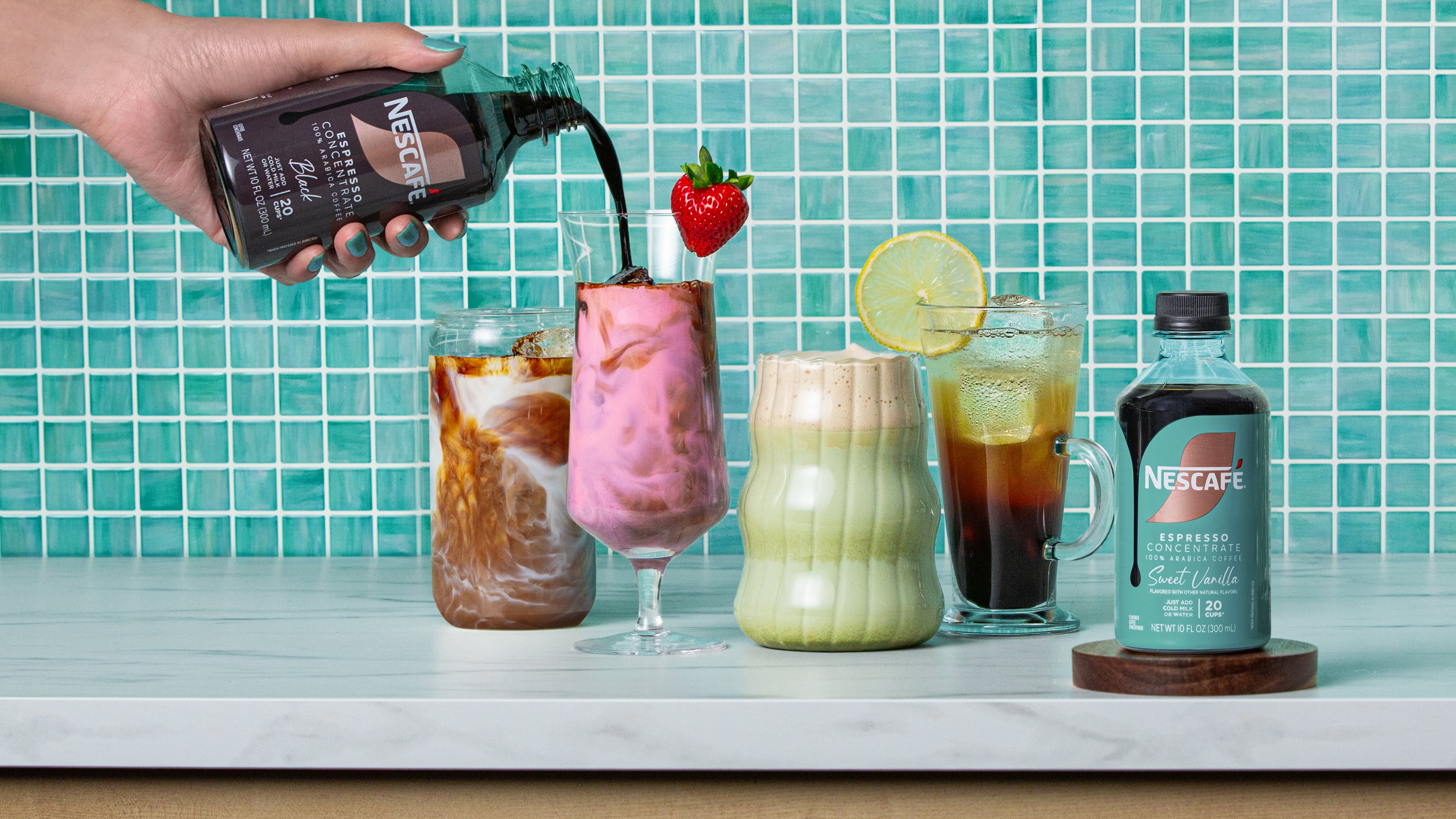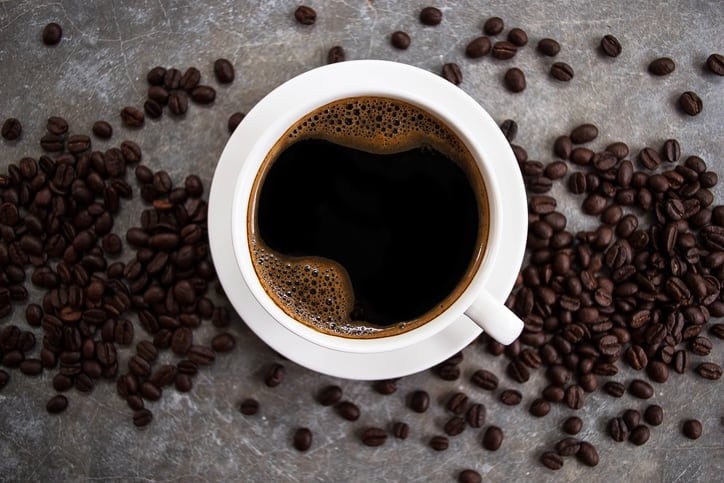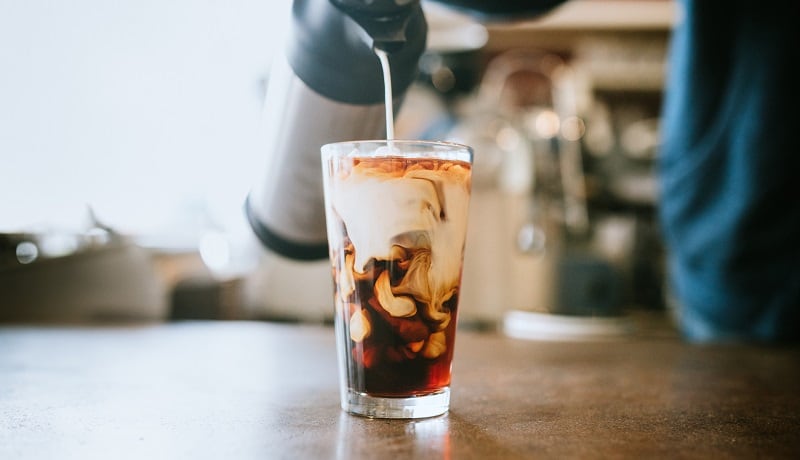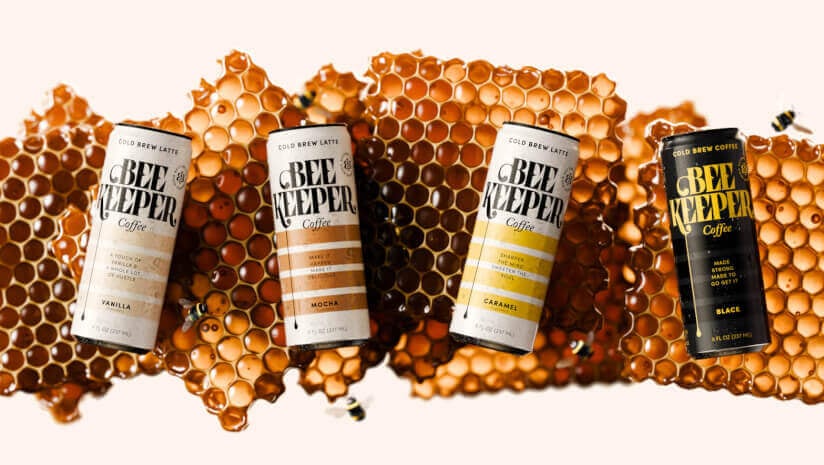Nescafé‘s foray into the coffee concentrate market meets the growing demand for customizable and convenient at-home coffee while addressing higher coffee shop prices and complex brewing methods, according to Senior Brand Marketing Manager Felipe Acosta.
“Espresso drinkers are looking for thrifty ways to treat themselves without compromise, especially their cold espresso beverages. We were able to create a simple and convenient solution to making café-quality drinks at home by reinventing the process for making iced espresso, allowing for customization and convenience without expensive equipment or compromising quality,” Acosta explained in an interview.
The company’s Espresso Concentrate is made with 100% Arabica beans and available in two flavors: Espresso Concentrate Black and Sweet Vanilla that dissolve in water or milk for a café-style beverage, Acosta said.
“We know consumers want to have it all, without compromise, and they have learned to hack their way out of constraints by finding creative and thrifty ways to always treat themselves – including their specialty coffee,” he added.
Nescafé Espresso Concentrate will be available in grocery stores and retailers nationwide beginning in February with an MSRP of $9.49 for a 300 mL bottle. Each bottle is “equivalent in cost to 20 cups when prepared as directed,” according to the company.
Sustainability, convenience and customization will continue to shape RTD coffee category
Café culture is a booming segment of the ready-to-drink category among Gen Z and Millennials who seek custom and premium coffee drinks.
Coffee concentrates tap into consumers’ coffee preferences with the option to add as much or as little espresso they desire, Acosta explained.
The company intends to “encourage consumers to create their own coffee rituals (pour it, mix it, hack it),” he added.
Sustainability is also top of mind for consumers in the category seeking “high-quality, barista-style coffee experiences without compromising conservation efforts,” Acosta said.
Since 2010, Nescafé “increased the amount of responsibly sourced coffee” it buys from its suppliers and farmers “to reach 75% of our global volumes,” Acosta explained.
In Australia, for example, Nescafé‘s coffees are produced from 100% responsibly sourced coffee beans, according to the company.
The company’s traceability and compliance practices are verified by independent organizations, including 4C Services, the Rainforest Alliance and Fairtrade, which rely on local auditors to assess and determine social, environmental, economic and health and safety conditions on farms.




